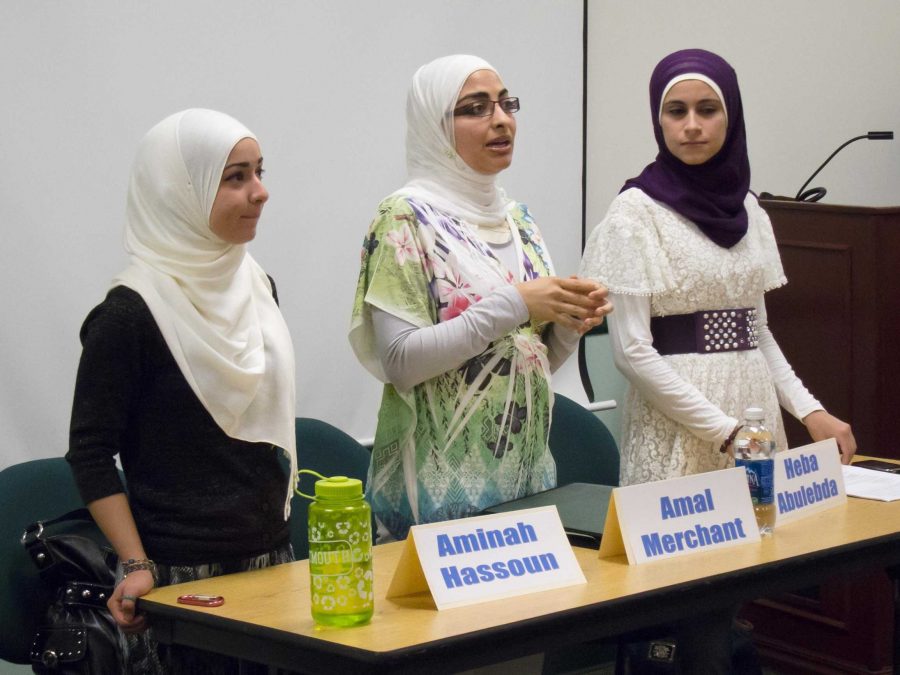
Photo by Jeffrey Farrar
Aminah Hassoun (left), Amal Merchant (center), and Heba Abulebda (right) share their thoughts on how it is to be a Muslim student on campus, presented in the MC cafeteria on Sept. 13.
A panel discussion with three female Muslim students held on Sept. 13 at Moorpark College gave insight into different aspects of the Islam and difficulties they face in the US.
This was the second event in the The Year of Conflict Transformation at Moorpark College, which is an annual series of events, include speakers and discussions dedicated to the 10th anniversary of 9/11.
One of the speakers, Amal Merchant, a 29-year-old graduate of California State University Northridge, spoke about the perceptions of Muslims.
“Since 9/11, Islam is the culture of fear, and as Muslims we are the target of crimes because of this outcome.”
To diminish possible misperceptions about Islam, the three women discussed different aspects of the religion with the audience. It was mentioned, for example, that other religions such as Christianity and Judaism are included and have much to do with the Islamic faith.
A further issue discussed was the role of gender. The speakers clarified that the perception that only women have certain religious restrictions is wrong. Muslim women are required to cover their hair and neck in public since the time they enter puberty. Men, on the other hand, are not allowed to wear gold.
Heba Abulebda, a 19-year-old Engineering major from Moorpark College, moved to the US in 2007 with her family from Palestine, due to the political situation in the state and because there were better opportunities for education in the US.
“Women are just as respected as men in Islam,” said Abulebda.
“Under god we are created equally,” added Merchant.
The third speaker, Aminah Hassoun, a 21-year-old Cal Luthern graduate and religion and political science major, was also born and raised in the US. She started wearing the covering, which is called hijab, when she was 11 years old.
“This is the way I chose to dress,” said Hassoun. “I want people to notice me. It is important for Muslim women to wear the
